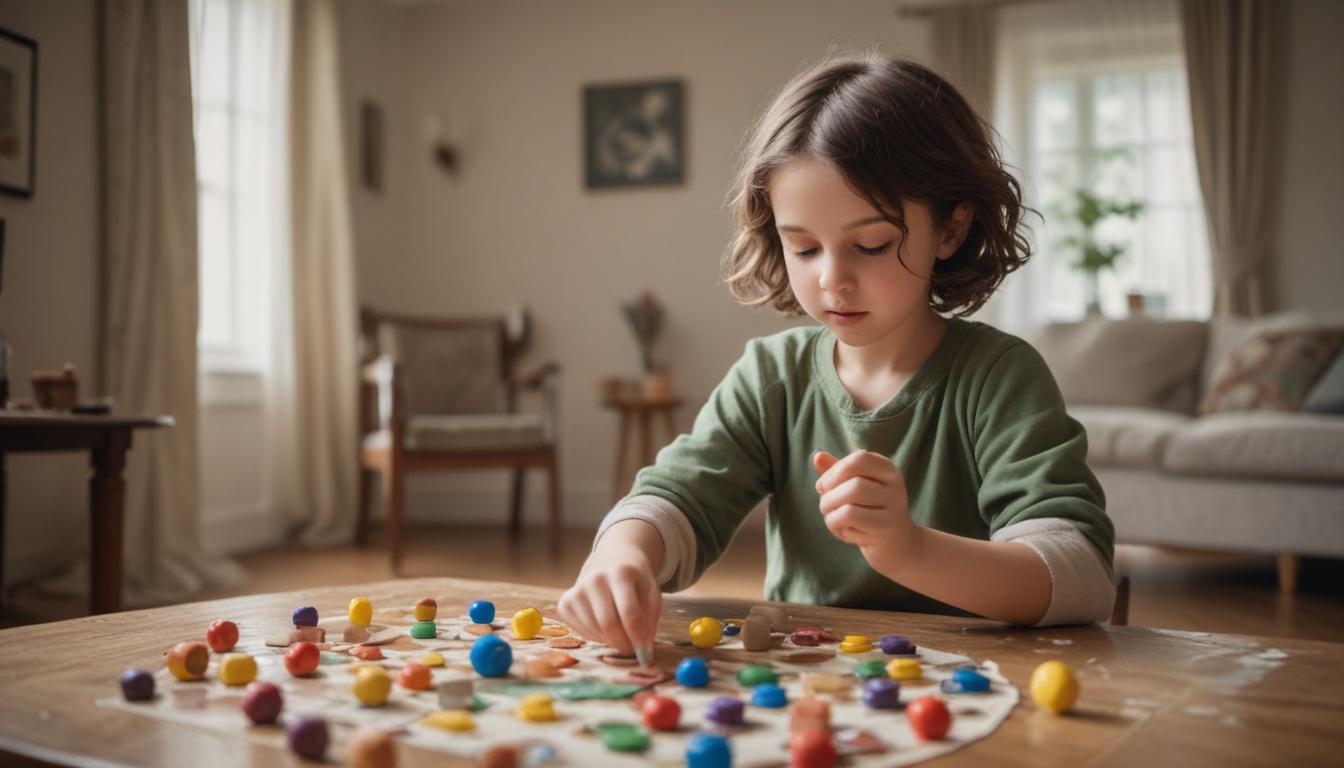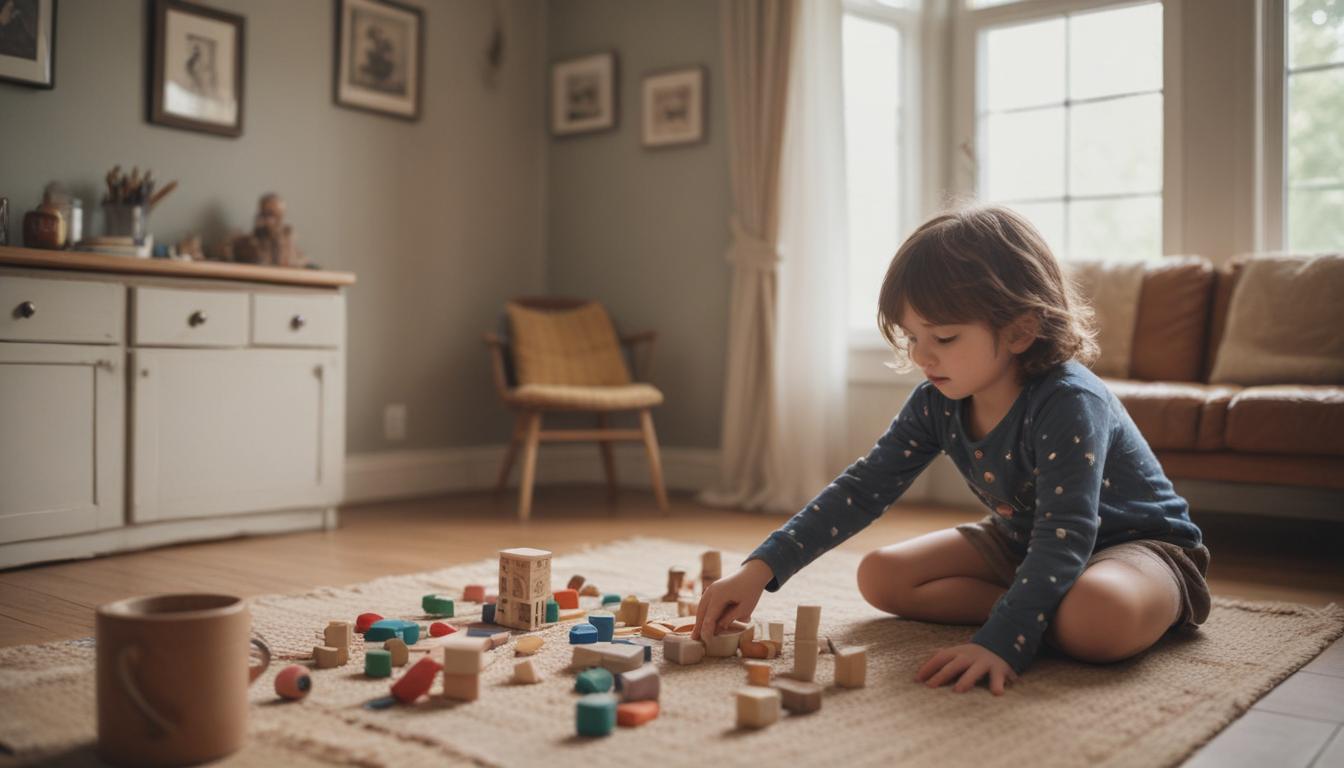Now Reading: Why Your Inner Child Needs You to Play
-
01
Why Your Inner Child Needs You to Play
Why Your Inner Child Needs You to Play

The Importance of Play Rekindling Your Inner Child
Does your day feel like one long to-do list? Between work, chores, and other duties, life can quickly become a boring cycle of tasks. You might feel tired, uninspired, and disconnected from the person you used to be—the one who laughed easily and found joy in simple moments. If you’ve wondered why life got so serious, you’re not alone. Feeling stuck on a hamster wheel of productivity is a common struggle today.
The good news is there’s a powerful, natural cure for this burnout. It’s something you were an expert at as a child: play. Play isn’t a waste of time; it’s a basic human need that is vital for your mental, emotional, and physical health. By making a choice to bring play back into your life, you can escape from chronic stress, unlock your creativity, and rediscover a deep sense of joy and energy. It’s time to see play as a necessity for a well-lived life, not a luxury.
Why We Traded Laughter for Spreadsheets
As children, play is how we learn. It’s how we explore our world, understand social rules, and handle our feelings. But on the way to adulthood, society sends a clear message: play is for kids, and work is for grown-ups. We start to believe our value comes from our productivity and our ability to be serious and responsible. Fun becomes something to be scheduled or earned, not something that happens on its own.
This change happens so slowly we often don’t notice it. We swap curiosity for certainty and spontaneous fun for scheduled hobbies. The fear of being seen as childish or unproductive is strong, so we push down our natural playful side. Soon, we have a life that is efficient and respectable but is missing the very thing that made us feel alive. We forget that the best ideas and real connections often come from letting go, not from grinding harder.

The Surprising Power of Unstructured Fun
Playing again is much more than a way to kill time; it’s a biological need with amazing benefits for your mind and body. When you do something playful, your brain releases “feel-good” chemicals like endorphins and dopamine. This immediately helps reduce stress by lowering cortisol levels, melting away tension and worry. Play interrupts the anxious, overthinking brain, helping you find a state of “flow” where you are fully in the moment.
Beyond stress relief, play is a supercharger for your brain. It boosts neuroplasticity—the brain’s ability to create new connections. This is key for learning, memory, and thinking flexibly. When you try a new game or solve a puzzle just for fun, you are literally building a healthier brain. Play also improves creativity and problem-solving skills. By taking a break from a problem to do something fun, you give your mind the space it needs to make new connections, leading to those “aha!” moments.
Simple Ways to Invite Play Back Into Your Life
Bringing play back into your routine doesn’t mean you need to change your whole life. It’s about making small, intentional shifts in how you think and act. The most important part is to let go of the need for a specific outcome and just focus on the enjoyment of the activity itself.
Schedule Unscheduled Time
This might sound strange, but it’s a great way to make room for spontaneity. Block out an hour or two on your calendar and call it “Free Time” or “Adventure Hour.” The only rule is that you can’t plan anything for it. When the time comes, do whatever feels right. Maybe that’s dancing in your living room, taking a walk with no destination, or just sitting in a park and people-watching.
This practice helps you listen to your inner voice instead of your to-do list. It’s about letting go of control and allowing for happy accidents. By protecting this time, you tell yourself that rest and aimless fun are just as important as your other tasks. It’s a powerful investment in your own wellbeing.
Revisit Old Hobbies and Embrace Silliness
Think about what you loved to do as a kid. Was it drawing, building with LEGOs, playing music, or riding your bike? Pick one to try again, but with a new rule: you are not allowed to be good at it. The goal is not mastery; it’s simply to get lost in the activity. Doodle without worrying about the final picture. Buy a coloring book and use wild color combinations.
Adding silliness to your day is another great tool. Tell a bad joke, have a staring contest, or wear a funny hat for no reason. These small acts break the spell of seriousness that rules adult life. They remind you not to take things so heavily and create micro-moments of joy that build up over time, shifting your mood from stressed to lighthearted. Play is not an escape from reality; it is a return to your most authentic self.


































